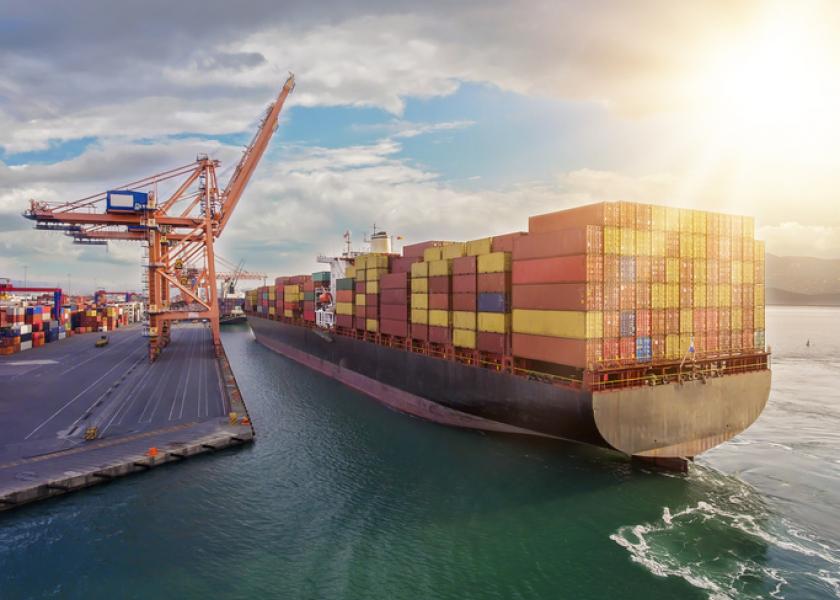Meat Institute Supports Klobuchar-Thune Ocean Shipping Reform Act

The North American Meat Institute (Meat Institute) called for the U.S. Senate to pass a bipartisan bill to address unreasonable ocean carrier practices that are undermining competitiveness of American exporters including the meat and poultry industry. The bill, the Ocean Shipping Reform Act was introduced by Senators Amy Klobuchar (D-Minn.) and John Thune (R-S.D.)
“The problems at our ports include delays of shipments of American made goods to overseas trading partners due to the unreasonable practices of foreign-owned ocean carriers,” said Julie Anna Potts, President and CEO of the North American Meat Institute. “These delays are a huge cost to meat and poultry companies as their perishable products await transport.”
Carriers are declining or cancelling export cargo bookings, while frequent ship delays and cancellations with little or no notice to exporters is delaying shipments by weeks or even months. The resulting inability of shippers to deliver their products on schedule affects the reliability of American exports, and decreases export values and market share.
According to the Agriculture Transportation Coalition on average 22 percent of US agriculture foreign sales could not be completed due to ocean carrier practices including: exorbitant freight rates; declined booking requests; unreasonable freight and demurrage/detention charges; and failure to communicate schedules in a timely manner.
The Meat Institute also supports The Ocean Shipping Reform Act of 2021, introduced by U.S. Representatives John Garamendi (D-Calif) and Dusty Johnson (R-S.D.) which was approved by the House with a vote of 364-60.
About North American Meat Institute
The Meat Institute is the United States’ oldest and largest trade association representing packers and processors of beef, pork, lamb, veal, turkey, and processed meat products. NAMI members include more than 350 meat packing and processing companies, the majority of which have fewer than 100 employees, and account for more than 95 percent of the United States’ output of meat and 70 percent of turkey production.







